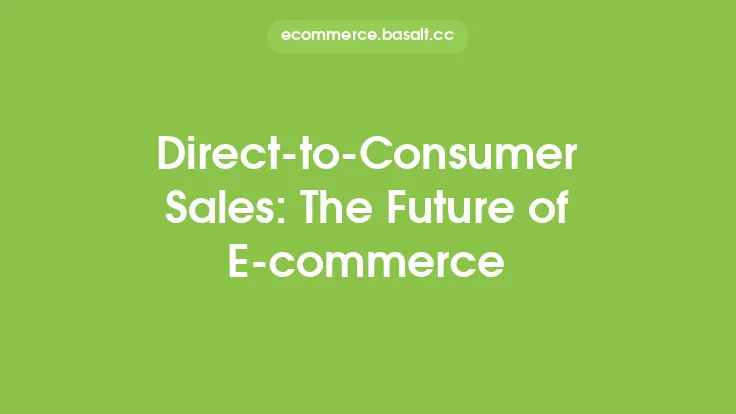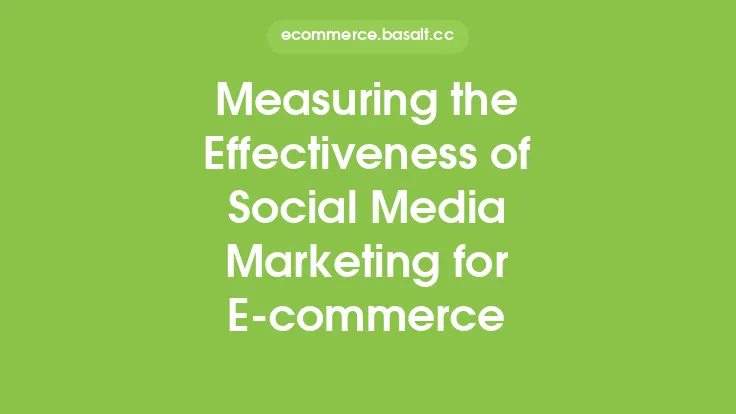The world of email marketing is constantly evolving, and e-commerce businesses need to stay ahead of the curve to remain competitive. As technology advances and consumer behavior changes, email marketing strategies must adapt to meet the demands of a rapidly shifting landscape. In this article, we'll explore the future of email marketing, highlighting key trends and predictions that will shape the industry in the years to come.
Introduction to Email Marketing Evolution
Email marketing has come a long way since its inception. From simple text-based messages to sophisticated, personalized campaigns, email has proven to be a versatile and effective channel for reaching customers. However, as consumers become increasingly savvy and inundated with digital messages, email marketers must innovate to capture attention and drive engagement. The future of email marketing will be characterized by a focus on personalization, automation, and mobile optimization, as well as a growing emphasis on data-driven decision making and customer experience.
The Rise of Artificial Intelligence in Email Marketing
Artificial intelligence (AI) is poised to revolutionize the email marketing landscape. By leveraging machine learning algorithms and natural language processing, AI-powered email tools can analyze customer behavior, preferences, and demographics to create highly personalized and targeted campaigns. AI can also help automate routine tasks, such as data analysis and content optimization, freeing up marketers to focus on high-level strategy and creative direction. As AI technology continues to advance, we can expect to see more sophisticated applications in email marketing, including predictive analytics, content generation, and customer service chatbots.
The Importance of Mobile Optimization
Mobile devices have become the primary means of accessing email for many consumers, and this trend is expected to continue. As a result, email marketers must prioritize mobile optimization to ensure that their campaigns are accessible, readable, and engaging on smaller screens. This includes using responsive design, concise subject lines, and easy-to-click calls-to-action. Mobile optimization is no longer a nicety, but a necessity, as consumers are increasingly likely to delete or ignore emails that don't render well on their mobile devices.
The Growing Role of Video in Email Marketing
Video content has become increasingly popular in recent years, and email marketing is no exception. By incorporating video into email campaigns, marketers can add a dynamic, engaging element that helps to capture attention and convey complex information in a concise, easily digestible format. Video can be used to showcase products, demonstrate services, or provide customer testimonials, among other applications. As video technology continues to evolve, we can expect to see more innovative uses of video in email marketing, including interactive videos, 360-degree videos, and live streaming.
The Evolution of Email Content
Email content is undergoing a significant shift, driven by changing consumer preferences and advances in technology. Gone are the days of generic, one-size-fits-all email blasts; instead, marketers are focusing on creating highly personalized, relevant content that speaks to individual customers' needs and interests. This includes using dynamic content, such as personalized product recommendations, as well as interactive elements, such as quizzes, polls, and surveys. Email content is also becoming more visual, with a growing emphasis on images, videos, and other multimedia elements.
The Role of Data and Analytics in Email Marketing
Data and analytics are playing an increasingly important role in email marketing, as marketers seek to measure the effectiveness of their campaigns and make data-driven decisions. By leveraging advanced analytics tools, marketers can track key metrics, such as open rates, click-through rates, and conversion rates, to refine their strategies and optimize their campaigns. Data is also being used to create highly targeted, personalized campaigns, as well as to identify and nurture high-value customer segments. As data analytics technology continues to evolve, we can expect to see more sophisticated applications in email marketing, including predictive modeling, customer journey mapping, and real-time analytics.
The Future of Email Marketing Platforms
Email marketing platforms are evolving to meet the changing needs of marketers and consumers. Modern email platforms are designed to be highly flexible, scalable, and customizable, with a focus on ease of use, automation, and integration with other marketing tools. We can expect to see more advanced features, such as AI-powered automation, predictive analytics, and real-time personalization, as well as greater emphasis on mobile optimization, video integration, and social media sharing. Email marketing platforms will also need to prioritize security, compliance, and deliverability, as consumers become increasingly concerned about data privacy and email spam.
The Impact of Emerging Technologies on Email Marketing
Emerging technologies, such as blockchain, virtual reality, and the Internet of Things (IoT), are poised to have a significant impact on email marketing. Blockchain, for example, can be used to create secure, transparent, and tamper-proof email campaigns, while virtual reality can be used to create immersive, interactive experiences that simulate real-world environments. The IoT can be used to collect data from connected devices, creating new opportunities for personalized marketing and customer engagement. As these technologies continue to evolve, we can expect to see more innovative applications in email marketing, including new formats, channels, and engagement models.
Conclusion
The future of email marketing is exciting and rapidly evolving. As technology advances and consumer behavior changes, email marketers must adapt to stay ahead of the curve. By prioritizing personalization, automation, mobile optimization, and data-driven decision making, marketers can create highly effective, engaging email campaigns that drive real results. As we look to the future, it's clear that email marketing will continue to play a vital role in e-commerce, providing a powerful channel for reaching customers, building relationships, and driving revenue. By staying informed about the latest trends and predictions, marketers can position themselves for success in a rapidly changing landscape.





